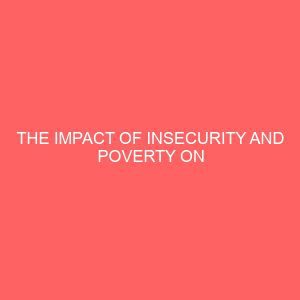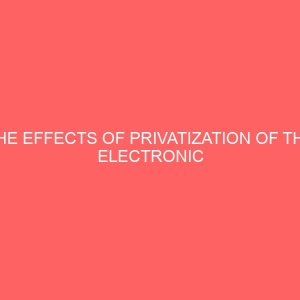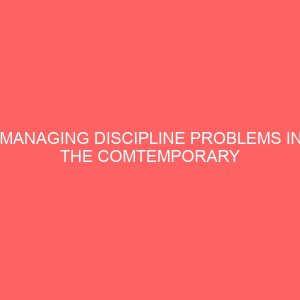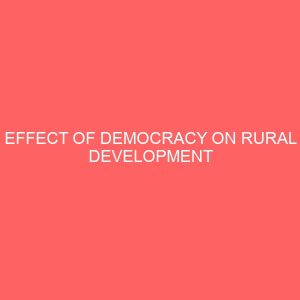Description
The impact of insecurity and poverty on sustainable economic development in Nigeria (a study of Kogi state).
Abstract
This work is on the impact of insecurity and poverty on sustainable economic development in Nigeria using Kogi State as a case study. The major objective of this project is to examine to identify the impact of insecurity on sustainable development in Kogi State, to determine the effect of poverty on the sustainable development of Kogi State and to examine the possible solution to insecurity and poverty in Nigeria. The methodology adopted in gathering data was descriptive method, both the primary and secondary methods. The major instrument used to gather data from primary source is the questionnaire. From a population of 4,500,000 sample size of 400 respondents was selected using simple random technique. Findings revealed that insecurity and poverty can lead to family instability, food insecurity and international vulnerability. It can lead to the loss of lives and properties in an organization. Insecurity affects sustainable development negatively in the areas of tourism and foreign investment in Nigeria. In view of the findings, it was recommended that The Federal Government (FG) should formulate and effectively implement policies and programmes capable of addressing the root causes of insecurity in Nigeria–such as Ethno- religious conflict, systemic and political corruption, weak security system and unemployment among others.








Reviews
There are no reviews yet.